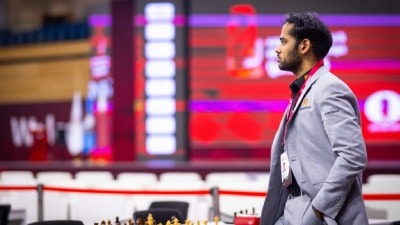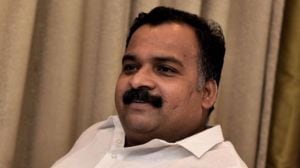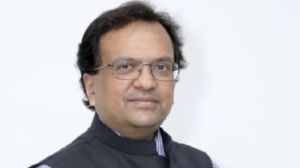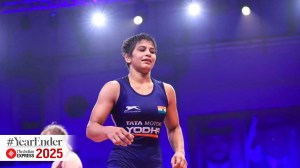13 going on 14
The photo-ops are over, the 13th Lok Sabha has been captured one last time in a wide-angled frame. With President A.P.J. Abdul Kalam exercis...

The photo-ops are over, the 13th Lok Sabha has been captured one last time in a wide-angled frame. With President A.P.J. Abdul Kalam exercising his powers under Article 85 of the Constitution and dissolving the Lower House, the most exhaustive democratic exercise in the world has begun. But as outgoing MPs and those seeking to replace them wend their way to the voter, it could be asked: will this be a watershed election? By current indicators 8212; the political formations in contention, the choices marshalled before the voter, the demands made by the elector 8212; it could well be. In the manner in which issues and options are articulated by candidate and voter, we could perhaps witness a new spirit of transparency and accountability.
After a decade of hung Parliaments, Elections 2004 take place amidst a firm consensus on the inevitability and indeed the virtues of coalition governance. Prime Minister Vajpayee has listed delivery of political stability as one of the NDA government8217;s main achievements. The BJP reconciled itself to the coalition era two general elections ago; and after its Pachmarhi detour, now the Congress too has made peace with reality. If its alliance with regional players like the DMK reflects fresh pragmatism, erstwhile free radicals like the BSP are dramatically toning down the rhetoric and preparing to be accommodated under one of the two umbrellas. But once the seat-sharing is finalised, the onus will be on both the formations to knit together their constituents with a coherent and detailed agenda for governance.
Therein lies the basis for swirling optimism this election season. It could be the residue of the assembly elections this winter, where voters kept the politicians to the straight and narrow of issues of development. Voters this time around plumbed for long-term commitment to addressing concerns like bijli, sadak, pani, instead of being bewitched by grand promises of instant liberation from all their woes. Aspirants to the 14th Lok Sabha must also be aware that this time around the young dominate electoral rolls like never before. For them a vote will not be an affirmation of old loyalties; it is an investment in their own future. As they weigh their options, we say, may the better contestant win.
- 01
- 02
- 03
- 04
- 05































